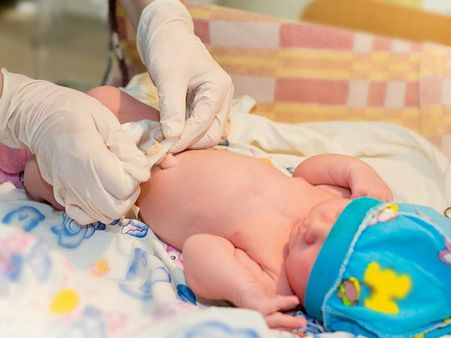Just In
- 1 hr ago

- 5 hrs ago

- 6 hrs ago

- 11 hrs ago

Don't Miss
- Movies
 LSD2 Box Office Collection Day 1 Prediction: Dibakar Banerjee’s Film To Have Slow Start; Will Fail To Touch 5C
LSD2 Box Office Collection Day 1 Prediction: Dibakar Banerjee’s Film To Have Slow Start; Will Fail To Touch 5C - Finance
 1:3 Bonus Share, Rs 13.25/Share Dividend: Buy Maharatna PSU, TP Rs 355, Fundraise Approved
1:3 Bonus Share, Rs 13.25/Share Dividend: Buy Maharatna PSU, TP Rs 355, Fundraise Approved - Sports
 Michail Antonio felt officials were against West Ham after European exit
Michail Antonio felt officials were against West Ham after European exit - News
 12 Jurors Picked For Donald Trump’s Hush Money Trial, Alternate Selection Continues
12 Jurors Picked For Donald Trump’s Hush Money Trial, Alternate Selection Continues - Automobiles
 Aprilia RS 457 Accessories: A Detailed Look At The Prices
Aprilia RS 457 Accessories: A Detailed Look At The Prices - Education
 Karnataka SSLC Result 2024 Soon, Know How to Check Through Website, SMS and Digilocker
Karnataka SSLC Result 2024 Soon, Know How to Check Through Website, SMS and Digilocker - Technology
 Nothing Ear, Ear a With ANC, Up to 42.5 Hours of Battery Launched; Check Price and Availability
Nothing Ear, Ear a With ANC, Up to 42.5 Hours of Battery Launched; Check Price and Availability - Travel
Telangana's Waterfall: A Serene Escape Into Nature's Marvels
What You Should Know About Gastrointestinal Problems In Premature Babies
The gestation period for human babies is 37-40 weeks. This is the maximum time required for the baby to grow and develop. Out of this, the final few weeks of pregnancy are very important as it is the time when the foetus's organs begin to mature, so that they can function normally when the baby is out in the world. Also, this is the time when the baby will store energy and build up fat reserves in its body to protect itself from the change in temperature.
Sometimes, due to various complications resulting from external as well as internal reasons, babies are born before the due date. This results in premature babies. While the effect of a preterm delivery may depend on how early the baby was born, it is nevertheless something to worry about.

Babies born before their full term are classified as premature babies. Any baby born before 39 weeks may have to be kept under observation because their organs are not fully developed and also may be grossly underweight.

Common Problems In Preemies
Problems with breathing and digestion are most common in preterm babies. In fact, they have a hard time sucking and swallowing as well. They may not know how to regulate their body temperature which may make them cold and susceptible to illnesses. This is the reason why a majority of preterm babies develop jaundice a few hours after their birth. But the biggest problems faced while taking care of a premature baby is the digestive issues.

Gastrointestinal Problems In Preemies
Preterm babies have underdeveloped gastrointestinal systems, resulting in a lot of complications such as indigestion, colic, acid reflux, etc. Though all this can be treated with proper care and precautions, the one thing that spells absolute nightmare for mothers of preemies is a condition called necrotising enterocolitis (NEC).

What Is Necrotising Enterocolitis (NEC) And How Is It Caused?
Necrotising enterocolitis is a condition that affects the intestines of newborn babies, mostly preterm ones. It is the condition where the intestines of the baby slowly deteriorate. The bacteria naturally present in the intestines then make their way to the abdomen and cause an infection. This is considered to be a very serious condition that affects the newborn preemies two-three weeks after birth.
The main reason for the deteriorating of the intestines is believed to be poor blood circulation. This weakens the intestines and may result in their failure. The walls slowly form a hole, giving the bacteria access to the delicate organs in the abdomen.

Treatment For Necrotising Enterocolitis
The most common giveaway for necrotising enterocolitis is painful swelling in the abdominal area of the baby. If you also notice blood in its stools, it is time to get them checked. The doctor will examine the abdominal area through an X-ray to determine the condition of the intestines.
The
treatment
of
the
condition
usually
depends
on
how
severely
your
baby
is
affected
by
it.
The
first
will
be
to
stop
feeding
the
baby
as
they
will
be
put
on
IV
fluids.
A
regular
dose
of
antibiotics
will
then
help
the
baby
fight
off
the
infection.
Some
babies
who
find
it
difficult
to
breathe
due
to
a
swollen
abdomen
may
need
breathing
assistance.
The
doctor
may
also
prescribe
surgery
if
there
is
a
lot
of
damage
done
to
the
intestines
in
order
to
extract
the
damaged
parts.

Complications Related To Necrotising Enterocolitis
Although necrotising enterocolitis affects 5%-10% of preemies, it is still something to be worried about. While most babies recover normally to lead a healthy life if the condition is diagnosed and treated early, some babies develop problems such as intestinal blockage due to bowels not moving smoothly. Babies who have had a part of their intestines removed due to excess damage may suffer from malabsorption, where the intestines do not completely absorb the nutrients in the food.
A preterm baby may need a whole lot of love and care. It is important to listen to your doctor keenly and follow their instructions. Keep a constant eye on them and rush to a doctor immediately if you notice that your preemie is having a problem. Timely treatment will surely save you and your little one a whole lot of trouble.
-
 insync100 Popular Hindu Baby Names For Girls And Boys That Start With The Letter M
insync100 Popular Hindu Baby Names For Girls And Boys That Start With The Letter M -
 pregnancy parentingExclusive: Born Too Soon! How Navigating Prematurity With Courage And Collaboration Saved A Little Girl
pregnancy parentingExclusive: Born Too Soon! How Navigating Prematurity With Courage And Collaboration Saved A Little Girl -
 pregnancy parentingExpert On Importance Of Screening Newborns For Lung Cancer
pregnancy parentingExpert On Importance Of Screening Newborns For Lung Cancer -
 fashionChildren's Day 2023: Bollywood Celebs Prefer Comfy And Cute Outfits For Their Babies, Get Inspired!
fashionChildren's Day 2023: Bollywood Celebs Prefer Comfy And Cute Outfits For Their Babies, Get Inspired! -
 pregnancy parentingHow To Calm An Irritable Baby In Under 1 Minute? Tips For New Parents
pregnancy parentingHow To Calm An Irritable Baby In Under 1 Minute? Tips For New Parents -
 pregnancy parentingVaginal Tears During Childbirth: How To Take Care Of It At Home?
pregnancy parentingVaginal Tears During Childbirth: How To Take Care Of It At Home? -
 pregnancy parentingTeenage Pregnancy: The Effect On Babies Mentally, Emotionally, Socially And Physically
pregnancy parentingTeenage Pregnancy: The Effect On Babies Mentally, Emotionally, Socially And Physically -
 pregnancy parentingSummer Baby Care: How To Avoid Dehydration In Babies
pregnancy parentingSummer Baby Care: How To Avoid Dehydration In Babies -
 babyIs Jaggery Safe For Babies? When Can You Start Giving Your Kid Jaggery?
babyIs Jaggery Safe For Babies? When Can You Start Giving Your Kid Jaggery? -
 babyWinter Soup For Babies: Benefits And 2 Recipes (Veg & Non-veg)
babyWinter Soup For Babies: Benefits And 2 Recipes (Veg & Non-veg) -
 babyAmazon Great Indian Sale On Baby Products: Car Seats, Carriers And Other Baby Travel Essentials
babyAmazon Great Indian Sale On Baby Products: Car Seats, Carriers And Other Baby Travel Essentials -
 pulseUnusual Names For Babies And Their Meanings
pulseUnusual Names For Babies And Their Meanings


 Click it and Unblock the Notifications
Click it and Unblock the Notifications



